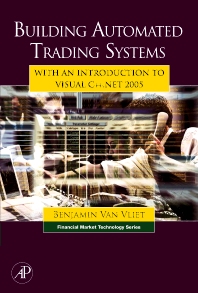Books in Social sciences and humanities
Books in Social sciences and humanities

Techno Security's Guide to Managing Risks for IT Managers, Auditors, and Investigators
- 1st Edition
- Johnny Long + 7 more
- English

Building Automated Trading Systems
With an Introduction to Visual C++.NET 2005- 1st Edition
- Benjamin Van Vliet
- English

Microsoft Vista for IT Security Professionals
- 1st Edition
- Anthony Piltzecker
- English

How to Cheat at Configuring Exchange Server 2007
Including Outlook Web, Mobile, and Voice Access- 1st Edition
- Henrik Walther
- English

Information Architecture for Information Professionals
- 1st Edition
- Susan Batley
- English

Globalisation and Work in Asia
- 1st Edition
- John Burgess + 1 more
- English

China and India
Opportunities and Threats for the Global Software Industry- 1st Edition
- John T McManus + 2 more
- English

Strategic Change Management in Public Sector Organisations
- 1st Edition
- David Baker
- English

Labour Disputes and their Resolution in China
- 1st Edition
- Jie Shen
- English

Improving Library Services to People with Disabilities
- 1st Edition
- Courtney Deines-Jones
- English